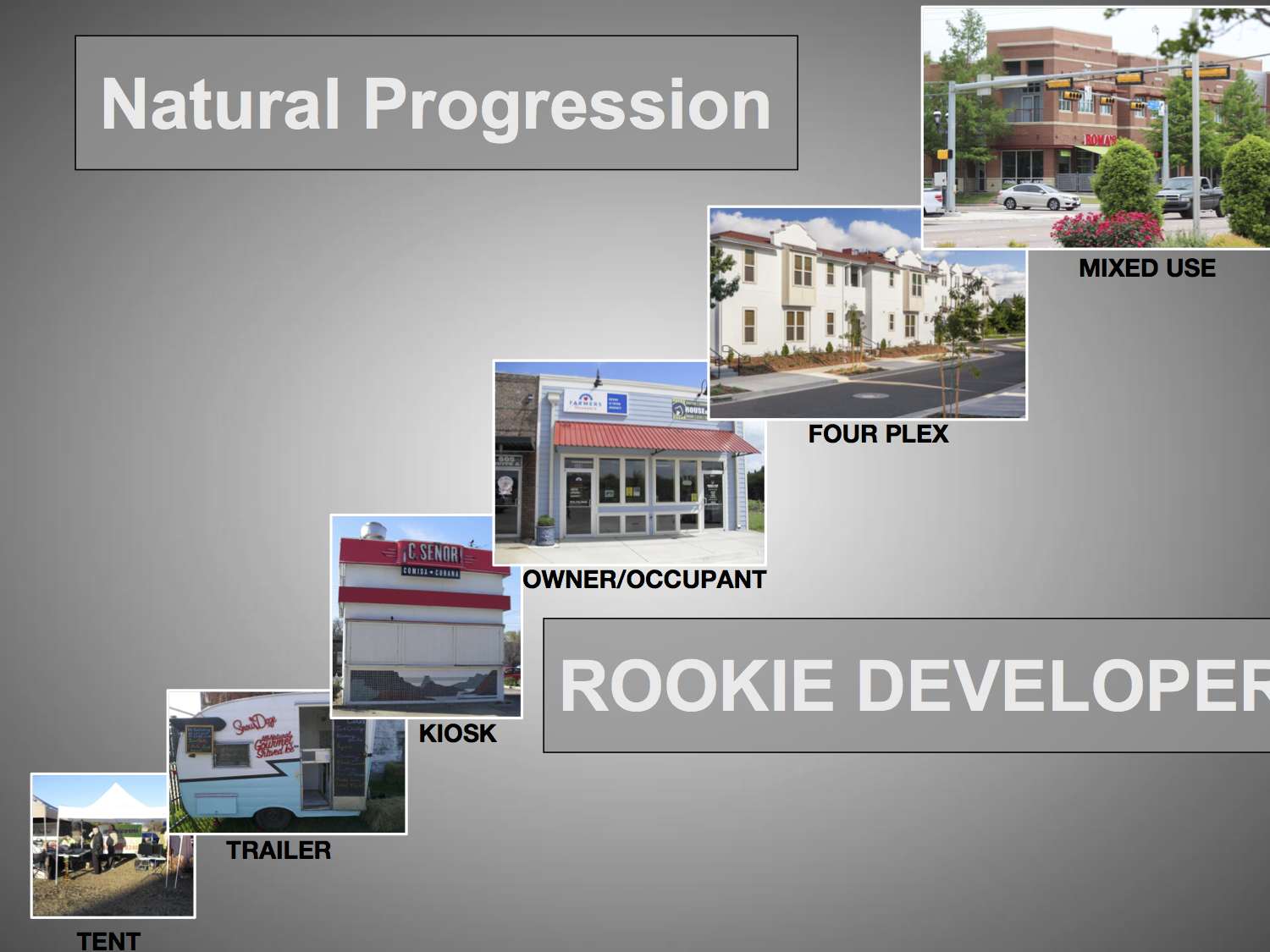 The Key Piece of Homework is to try and capture your project in a straightforward pro forma.
The Key Piece of Homework is to try and capture your project in a straightforward pro forma.
You can find the pro forma spreadsheets here in the Small Scale Developers Resources page on the CNU.org web site.
You will find two pro formas, the first is a simple four unit cottage court, the other a four-plex with potential expansion. By changing the information in the pro forma spreadsheet that describes the individual apartments, the buildings, the size of the lot, the likely rents you can try out you project and see if it makes money. If you don't work with Excel very often you may get frustrated by mechanics of the spreadsheet, but even if you hit a dead end working on this on your own, spending an hour trying to fit your project into one of these pro formas will give you a head start when we start to walk through how to do this in the Boot Camp.
You can also download PDF's of the site plans for the 4 unit cottage court and the Four-plex from the same Additional Resources page on the CNU.org's Small Scale Developer page which may help you visualize what is going on in the pro fro forma spreadsheets.
If you want to present your project for a critique on Sunday morning, the pro forma is a good way to capture some of the basic information that will shape your project:
- What are the likely rents?
- What are the likely project costs -(hard and soft)?
- How much cash will be needed and how much debt?
- Does the project make money?
- When does an investor get their principal back? When do they get their return?
- Can you draw fees while developing the project?
Things Worth Repeating
My good friend Phil Bess teaches very smart Architecture and Urban Design students at the University of Notre Dame. He told me that the best students in his classes still need to hear information on important concepts and tools repeated 5 times to retain them and start to recognize how they might be applied. If you would like a head start on that kind of repetition I recommend that you watch some of the following videos:
Arthur C. Nelson's presentation of the core stuff in his book Reshaping Metropolitan America from CNU 21
Michael Lander's talk at the University of Miami's Masters of Real Estate Development + Urbanism; Design From the Marketplace.
A couple of my video presentations; Recruiting Small Scale Developers from CNU23 and The Dark Art of Developing Small Projects
Link to Small Developer Videos
For anyone not attending the Duncanville Boot Camp this weekend, I encourage you to check out the material above and take a stab at putting your project into the basic pro forma spreadsheet. And as always, please post a comment or question here or on the Small Developer/Builders Group on FaceBook


